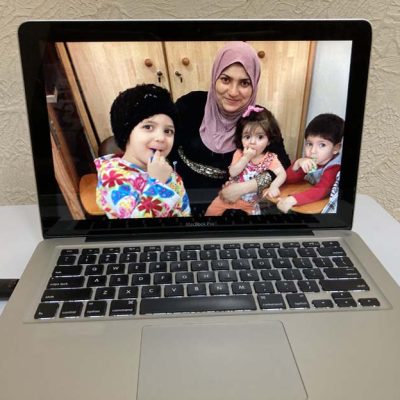Tele-Therapy for Refugees

~ Presentation Bullet Points ~
THE NEED
- Non-English speaking Refugees being resettled in the US and Canada arrive with mental health symptoms, including psycho-emotional trauma
- Mental health service providers in most medium to small host cities and communities do not speak the native language or have a cultural understanding
- Interpreters in most medium to small host cities and communities are scarce or nonexistent. Those that do exist rarely have the training and orientation to perform as confidential mental health interpreters.
- Refugee assistance organizations in these host communities consistently point to major mental health symptoms, including psycho-emotional traumas, as the main obstacle to successful resettlement and integration
- Humanitarian assistance to refugees typically focus more on the most visible and concrete needs – food, clothing, shelter, medical, economic, etc. while psycho-emotional wounds are neglected due to lack of service resources.
- As a result severe mental health needs go unattended and are allowed to become chronically dysfunctional in a person’s life, to the detriment of both the refugee and the community they are becoming part of.
- No current national service delivery system exists to address this need
Tele-Therapy For Refugees
A collaborative tele-therapy model of service delivery gathering together the requisite resources to bridge the language and cultural gaps to reach refugees in host communities anywhere in the US or Canada.
THREE CATEGORIES OF REQUIRED RESOURCES
Technology
Tele-Health Technology is an already well established resource used for confidential health care services.
Human Resources for Service Delivery
1) Direct Service Providers:
A growing national pool of therapists, coping skills trainers, and translators offering:
- individual, couples, and family therapy,
- self-help coping skills training to instill self-care abilities in refugees that further support treatment and re-empowerment,
- psycho-education,
- confidential translation
Selected Members of a refugee community provided with skills training and support in taking on psychosocial support and advocacy roles for their community.
2) Coordinating Body:
A central coordinating task group, made up of health care and social service professionals for coordination, guidance, and monitoring of the service delivery system, and to provided certified orientation and training to translators.
3) Community Representatives:
An ongoing pool of local stakeholders involved with organizations providing resettlement support in each host community who can be available to assist refugees in accessing and participating in the virtual therapy sessions that are arranged for them, and also offer insights and advice to the coordinating group.
Funding Support
1) Insurance and Health Care Funding:
Payment to therapists: Available sources: Medicaid, Refugee Medical Assistance (RMA), the Children’s Health Insurance Program (CHIP), or the Health Insurance Marketplace,
Payment to translators: Investigation of possible payment through one or more of these health care insurance programs, or from other funding sources, for essential health care related translation services.
2) Grants:
Government and foundation grants, as well as resources within host communities
